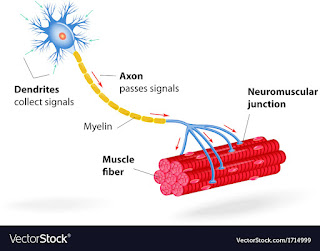Can mindfulness and guided imagery help patients after surgery?
Guided imagery is the conscious use of the
imagination to create positive images to support mind and body in their healing
process (1). Mindfulness is a kind of meditation during which we focus on the
present moment and become aware of our thoughts, emotions, bodily sensations,
and surrounding environment without criticism and judgments (2). We adopt an
open curious attitude to what flows in the present moment, without getting
attached to sensations, thoughts and emotions. Yoga, for example, is a mindful practice.
Guided imagery has ancient roots. In
Eastern medicine envisioning well-being is considered important for healing.
The Greeks Aristotle and Hippocrates used the power of imagery to help heal
their patients. Over the last decades, techniques of relaxation have been
researched to attain relaxation and control of bodily processes. The use of
biofeedback is an example of this (3).
Guided imagery and mindful
meditation in the preoperative period support the patients' recovery after
their surgical procedures. Studies have shown that patients who participated in
two to four guided imagery sessions prior to surgery required less pain
medication and left the hospital sooner than those who hadn't used imagery (4).
Guided imagery has been shown to calm fear and anxiety in these situations (4).
Mindfulness also helped to calm anxiety, decrease pain and speed recovery (5, 6
and 7).
Patients are not the only ones who benefit
from mindfulness. Surgeons do too. An article published by the American Journal
of Lifestyle Medicine in 2019 summarizes some of the relevant research in this
field (7). Mindfulness has been shown to protect against burnout by physicians
at the Rochester Medical Center. The research also found that mindfulness
helped to reduce medical errors. Another randomized study was done on first
year surgical residents at the University of California, San Francisco. The
surgical residents completed an eight week mindfulness training and were
compared to a control group. The results showed that those who completed the
mindfulness training had lower levels of stress and less depressive symptoms.
They also had improvements in motor and executive function (7).
Dr. Sara Lazar, a neuroscientist at
the Massachusetts General Hospital and Harvard Medical School, studied the
effects of meditation on brain structure. For example, a prospective controlled
study documented changes in brain structure after eight weeks of regular
mindful meditation (7 and 8).
In a competitive world where we are
constantly bombarded by judgments and criticism, mindfulness helps us to keep
the attention on our goals. Mindfulness cultivates an open-minded curious
approach to life; it builds awareness and resilience while fostering empathy
for ourselves and others.
References:
1) https://my.clevelandclinic.org/departments/wellness/integrative/treatments-services/guided-imagery
2) https://greatergood.berkeley.edu/topic/mindfulness/definition
3) https://www.mayoclinic.org/tests-procedures/biofeedback/about/pac-20384664
4)https://www.sciencedaily.com/releases/2008/01/080104123246.htm
5) https://pubmed.ncbi.nlm.nih.gov/30312812/
6)https://www.sciencedirect.com/science/article/abs/pii/S1546144018311499
7)https://www.ncbi.nlm.nih.gov/pmc/articles/PMC6796221/
8) https://www.massgeneral.org/psychiatry/research/lazar-lab-for-meditation-research



Comments
Post a Comment
Thank you for commenting.